Big companies have unique link-building needs compared to smaller businesses, so they need strategies that fit their scale.
Here's what we'll cover:
- What is enterprise link-building?
- The challenges involved
- Best strategies for enterprises
- Best practices for scaling link building
What is Enterprise Link Building?
Enterprise link building is how large companies drive real results by earning backlinks to the pages that matter most.
How is it different from link building for smaller companies?
Bill Sebald, Founder at Greenlane, is sure that link building is key for SEO because it shows a site's popularity.
Google’s original PageRank algorithm was all about that. Over time, as link selling became shady, Google had to get smarter. Now, Google looks for quality links and filters out the junk. Links still matter a lot, but the game has changed, especially for local and small businesses. These businesses need to show their local relevance or niche expertise. If a business doesn’t have something special to offer, it’s going to have a tough time getting noticed.
I asked Kristyna Stadlerova, SEO Manager, currently working for Cisco:
Enterprises, with larger budgets and expansive resources, engage in widespread, high-volume efforts, creating diverse, authoritative content and fostering relationships across industries. They often leverage existing partnerships and employ sophisticated advanced analytics to measure the impact on overarching business goals.
In contrast, small companies, constrained by limited resources, opt for a more localized, niche-specific approach. They prioritize quality over quantity, building relationships within their community, and focusing on targeted link acquisition from local directories and industry-specific sources.
In contrast, small companies, with limited resources, go for a more localized, niche-specific approach.
They focus on quality over quantity, building relationships within their community, and targeting links from local directories and industry-specific sources.
Large companies already rank for branded queries and enjoy strong online visibility. Their SEO efforts focus on driving traffic to high-impact pages, such as product launches or category hubs.
Apple, for example, invests in link building to support products like AirPods.

Why Should Enterprises Invest in Link Building?
Big companies need to invest in link building for several reasons.
First, large enterprises often compete in crowded markets. Effective link building helps them rank for competitive keywords, which is crucial for maintaining and strengthening their market position.
But for established enterprises, link building isn’t just about SEO.
It’s also about reinforcing their position as industry leaders. Backlinks from high-profile, authoritative sites serve as endorsements of the enterprise’s authority.
In fact, according to our recent research, 91.89% believe their competitors are buying links. That's just shy of 2024's 92%, and we didn't expect the numbers to align so closely.

In competitive industries, a strong backlink profile sets enterprises apart and contributes to a competitive edge.
Moreover, it complements a diversified marketing approach, broadens brand exposure, and provides long-term value, while also enhancing user experience and supporting content marketing efforts.
Getting back to our 2024 survey, according to 83.2% of SEO experts, the impact of link building on rankings and traffic is seen in two weeks or more, indicating its effectiveness over time.
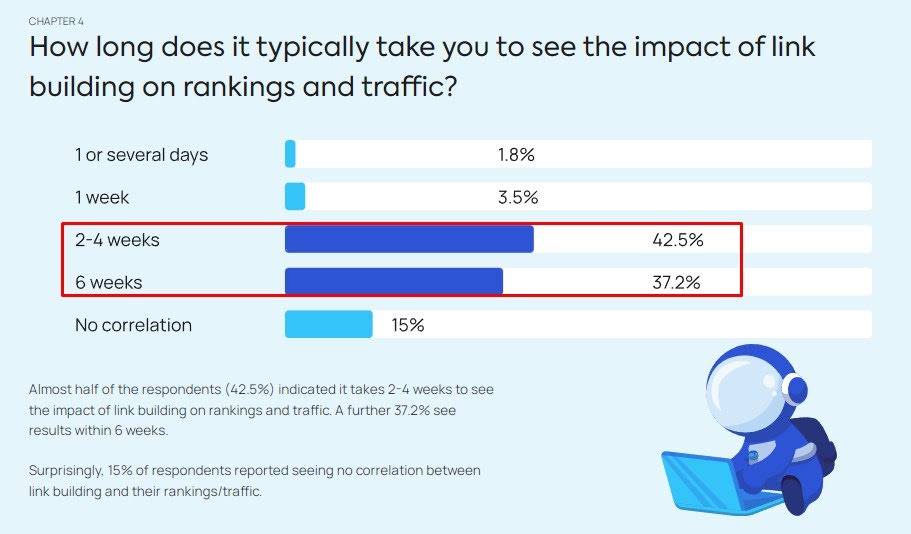
Challenges of Enterprise Link Building
Building links for enterprise-level companies comes with unique challenges.
For starters, such companies face huge competition. To rank for competitive keywords, you need to build links at scale. It’s not just about a few links for your main site; it involves establishing hundreds of links across various pages.
Volume is key, but maintaining quality is crucial.
As 47.8% of SEO professionals find link building the most challenging aspect, it’s clear this process is no small feat.
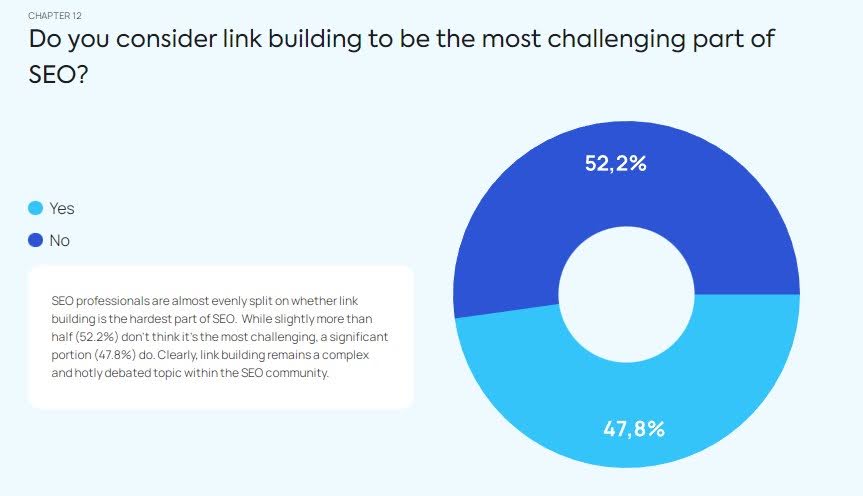
Thomas Riley, Senior SEO Manager at Paving Shopper notes:
For enterprise link-building, volume is key, we need link builders who can deliver quality links at scale. The main challenge is ensuring that we can sustain the link velocity whilst not decreasing quality.
The complexity increases when coordinating efforts across teams, ensuring brand consistency, and overcoming competition. Measuring direct impact on business metrics, balancing automation with personalization, and navigating complex attribution models add to the difficulty.
Kristyna Stadlerova, SEO Manager at Cisco highlights that:
Enterprise link-building presents challenges in … coordinating efforts across teams, ensuring brand consistency, and overcoming competition are hurdles. Measuring direct impact on business metrics, balancing automation with personalization, and navigating complex attribution models add to the complexity.
Managing large-scale link-building operations often involves dealing with bureaucracy and slower decision-making processes, which can make it harder to respond quickly to new developments.
One of the main challenges is investing your resources in the right places. Enterprises with a lot of resources and big budgets are more likely to scatter.
Building links for big businesses can be tricky because their corporate structures are complex. Unlike smaller companies, the decision-making process takes longer and involves more bureaucracy. This makes it harder to respond quickly to new developments.
Not all link building agencies will have the necessary expertise, staff, and processes to handle the challenges.
8 Best Enterprise Link-Building Strategies
Getting high-quality links on a large scale needs smart strategies, and not every link-building agency has the know-how, staff, or systems to manage this.
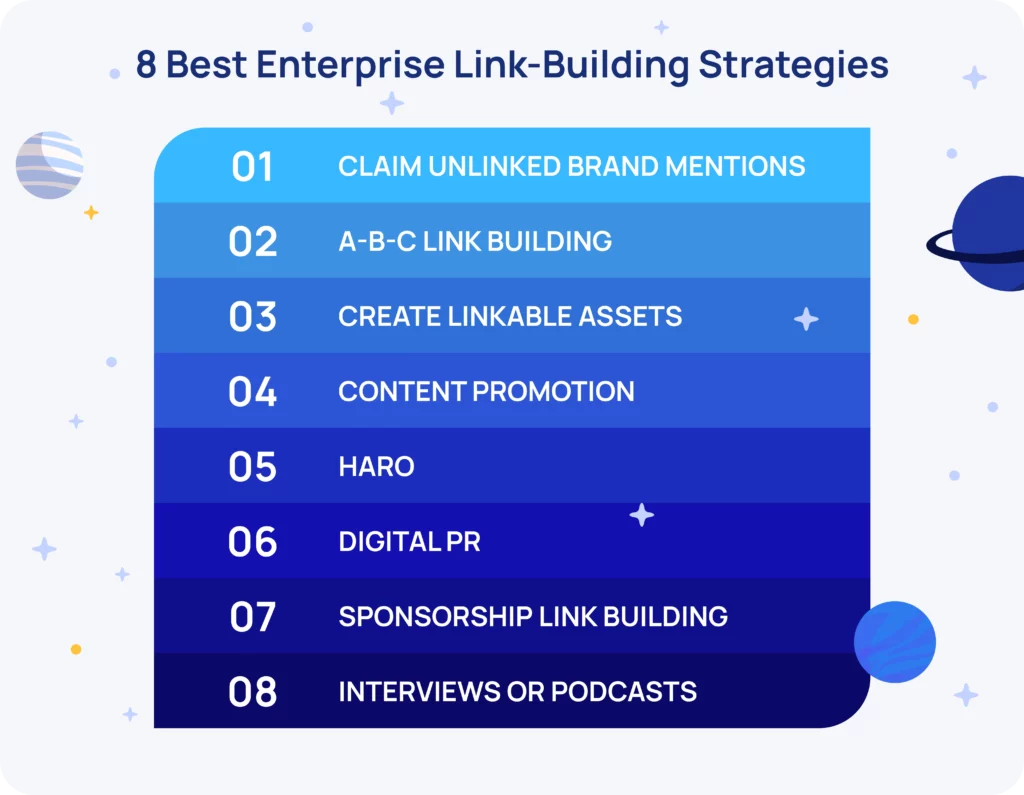
Here are our 8 most successful tactics, backed by years of experience building links for large clients like Capital.com:
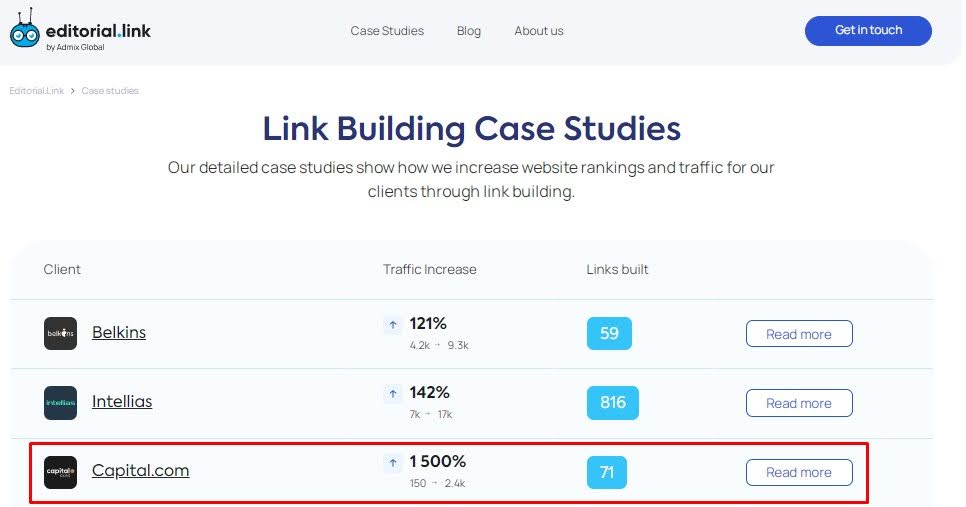
Claim unlinked brand mentions
Start with unlinked brand mentions.
If someone is already writing about your company, it’s easier to get them to include a link.
Tools like Ahrefs’ Content Explorer or Brand24 can help you find these mentions.
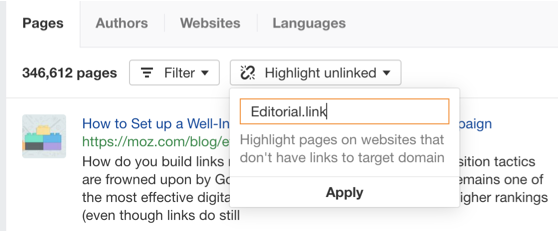
Then, reach out to the site owners and ask for a backlink.
A-B-C link building
A-B-C link exchanges are an alternative to traditional backlink exchanges.
Instead of linking directly back to your partner (B), you link to a third site (C), which then links back to B.
How can you find partners for A-B-C link exchanges?
Kristyna Stadlerova recommends leaning into your wide network of contacts:
Leverage existing industry relationships and establish partnerships through joint ventures and co-created content.
This method is harder for search engines to detect and is considered safer than direct swaps.
Create linkable assets
Linkable assets attract other creators who link to them to enhance their content.
These assets include checklists, industry research, statistical reports, free tools, and infographics.
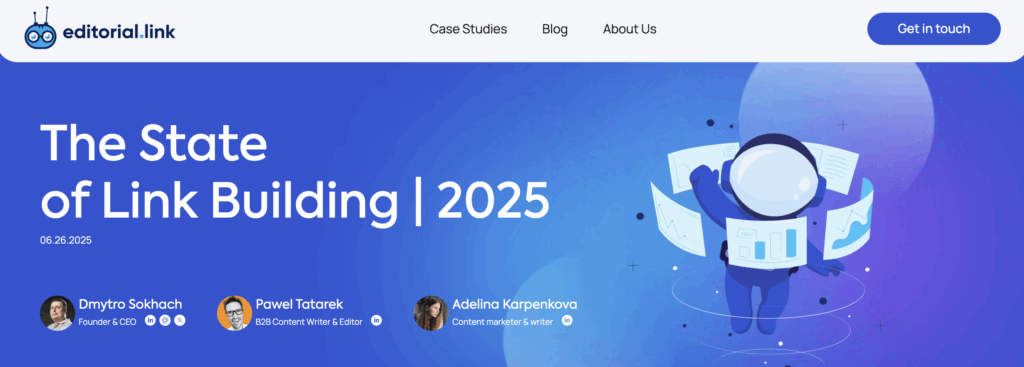
Creating such resources takes time and effort, but for large corporations, the investment pays off.
For instance, Leigh McKenzie’s article on Backlinko has been shared nearly 2k times.
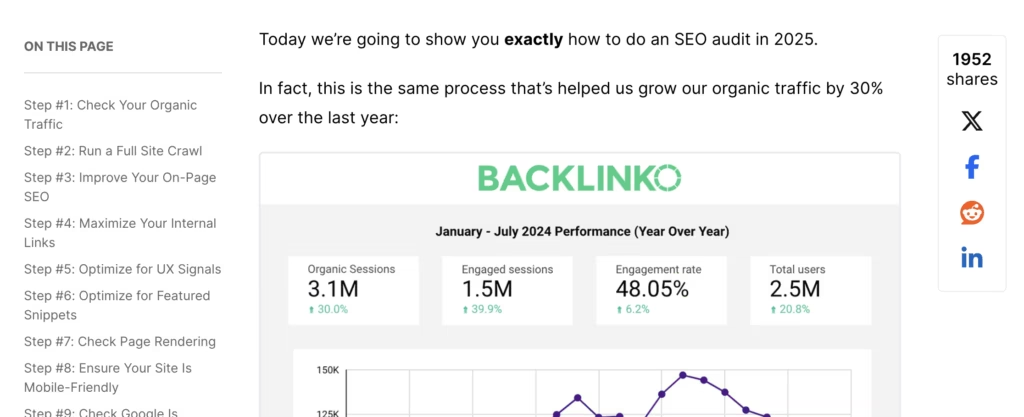
And earned around 300 referring domains:

It gets even better.
These assets not only generate links and traffic to their respective pages but also contribute to traffic on your commercial pages.
Content promotion
Creating content is just the first step. Promoting it ensures it reaches your target audience.
Use social publishing platforms like Medium.com, as well as email marketing and content syndication platforms.
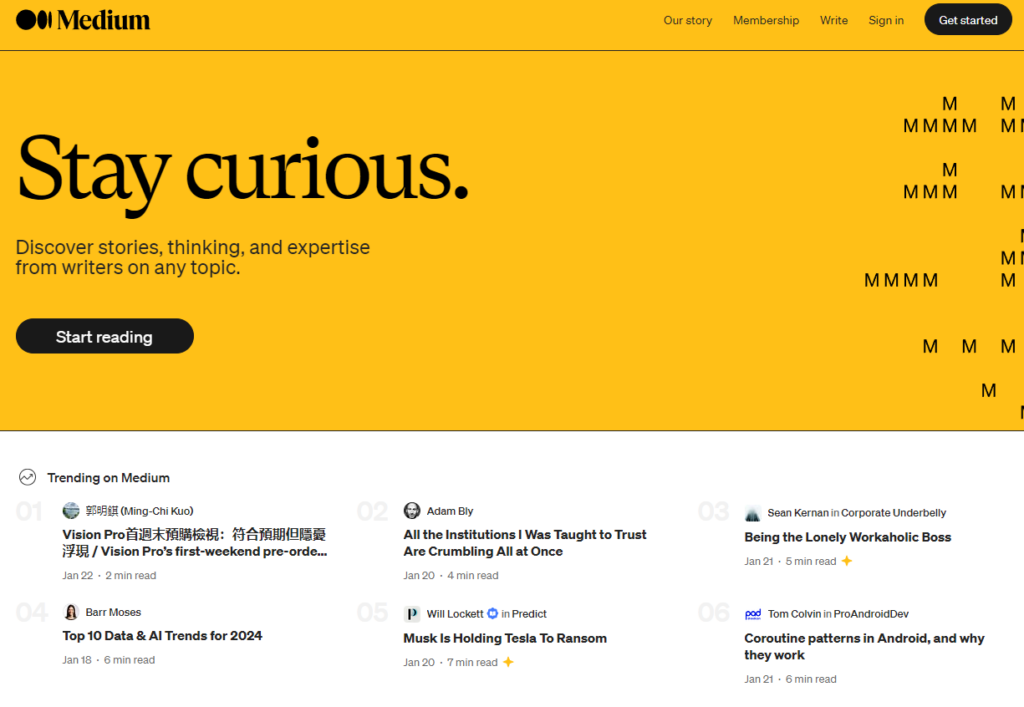
Additionally, consider SEO optimization, paid advertising, and sponsored content in industry blogs or news outlets.
HARO link building
HARO link building is a great way to get backlinks from high-authority sites.
Journalists post queries looking for expert insights. If you provide valuable information, you can get featured along with a backlink.
By the way, this is how we secured a link from Forbes.
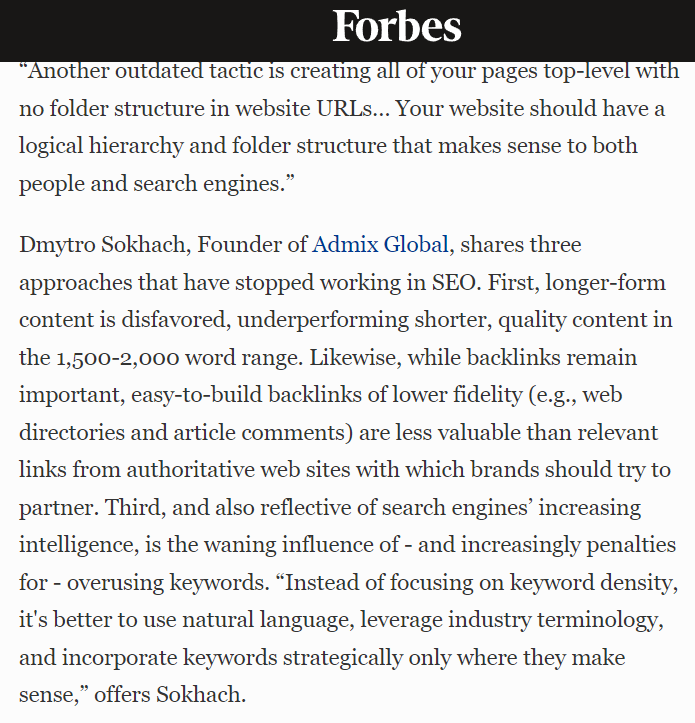
Though time-consuming and competitive, HARO is worth the effort.
Digital PR
Digital PR helps secure backlinks from media outlets.
For example, Uber’s Lost & Found campaign in 2022 earned them over 220 backlinks from reputable sources.

Common tactics include product PR, establishing thought leadership, creative campaigns, newsjacking, and data-driven research studies.
JustPark, a UK parking app that helps users reserve or rent out parking spaces, decided to focus their content on driving. They created an interactive game that simulates driving and tests your reaction time, comparing your results to the average for your age group.
According to Buzzstream, JustPark’s Reaction Time Test campaign earned them over 1,300 backlinks from reputable sources including DailyMail, Metro, and international sites like LaRepublica and LeVif.
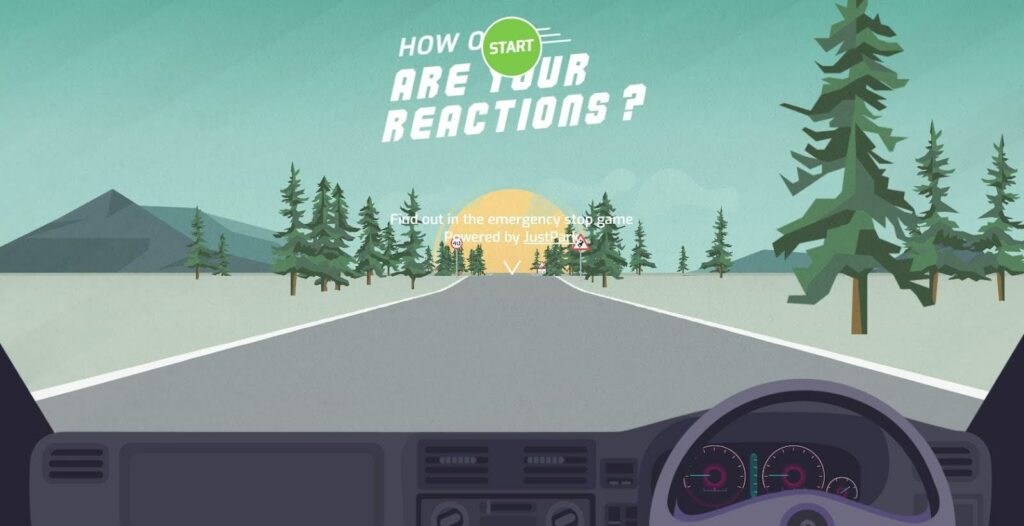
Interactive games like this are fantastic for building links because they encourage sharing. By positioning the game as a reaction test rather than a driver test, JustPark appealed to a broader audience, including mass media outlets.
Sponsorship link building
With LLMs shaping search results, brand presence matters more than just rankings.
Sponsorships give enterprise brands the links and visibility AI systems tend to surface.
Good example is Ahrefs sponsoring the 2025 Chiang Mai SEO Conference.
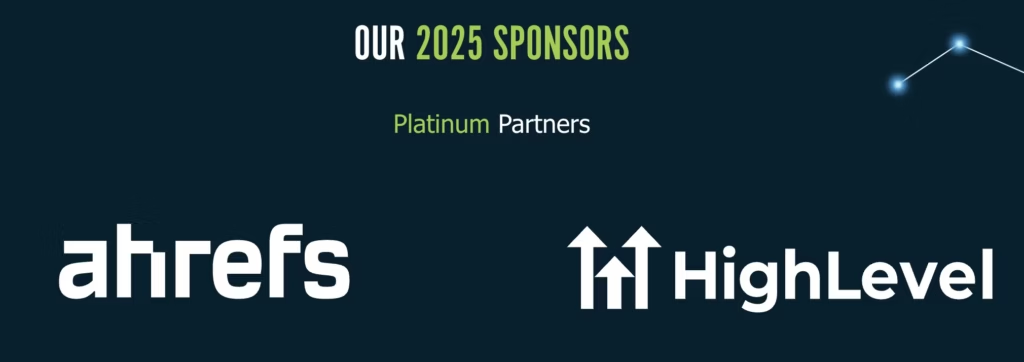
Sponsorships earn valuable backlinks and boost brand visibility, which is increasingly important in LLM-driven search.
Enterprises can support conferences, nonprofits, or scholarships to get links from .edu and .gov sites.
Local events and awards help with local SEO.
Interviews or podcasts
Building links through interviews and podcasts is another highly effective strategy for enterprises.
Here’s how to make the most of it:
- Produce Your Own Content: creating a quality podcast or publishing interviews with industry influencers and authorities can generate significant backlinks.
For example, an Elon Musk interview hosted by the New York Times generated almost 600 backlinks from high authority domains like Reuters. This not only builds links but also positions your brand as a thought leader.

- Get Featured: Being featured in other podcasts and interviews enhances media exposure and opens up opportunities for building links.
How To Do Enterprise-Level Link Building?
Even though enterprise link building can be challenging, with our tips below, you will be able to make the most of your resources and see real gains.
Focus on category pages
Imagine you’re a clothing retailer like Zara or Next.
Building links to every single product isn’t practical since you could have thousands. Instead, focus on category pages.
Evelina Milenova recommends focusing on category pages instead.
Starting with a specific niche or category is essential: set clear goals and focus on them until success. Then, you can replicate the process across other niches and categories.
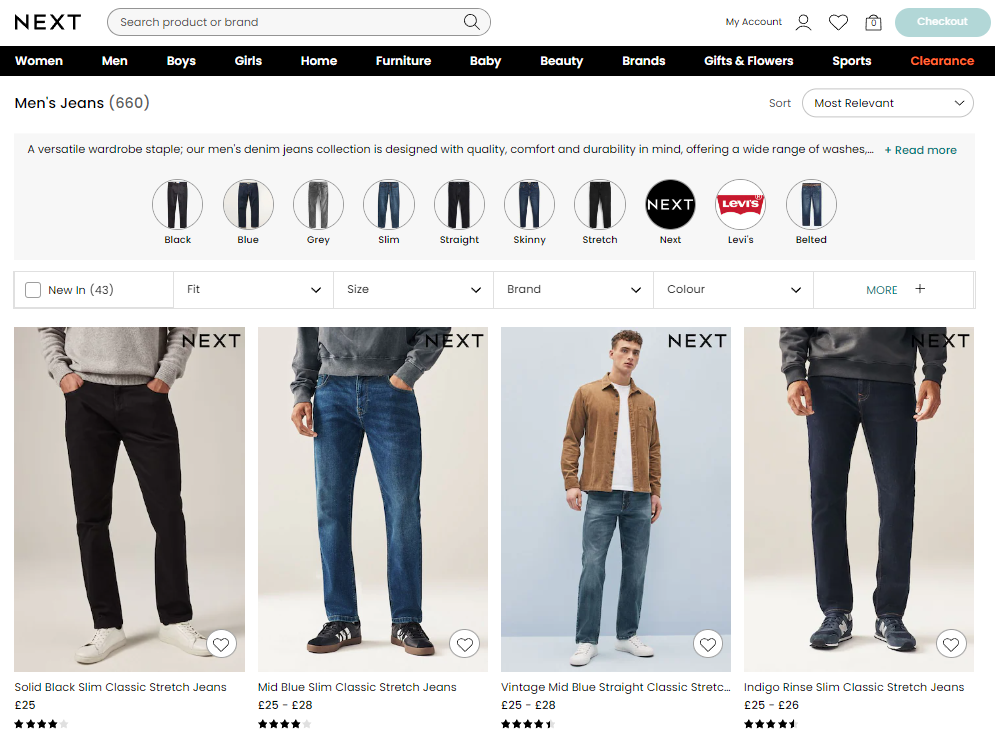
Stay relevant
Relevance is key in link building.
Search engines value links from relevant sites much more than those from unrelated ones. But when you need to build links at scale, you might run out of high-DR pages that are relevant.
Here’s what you can do:
- Lower your DR expectations. Links from domains with DR 20-50 may not pass as much link equity as higher ones, but they’re better than irrelevant ones.
- Focus on securing links from websites that share your target audience. For instance, a large travel agency and a camera manufacturer might appeal to the same audience, opening up new opportunities for relevant content and link exchanges.
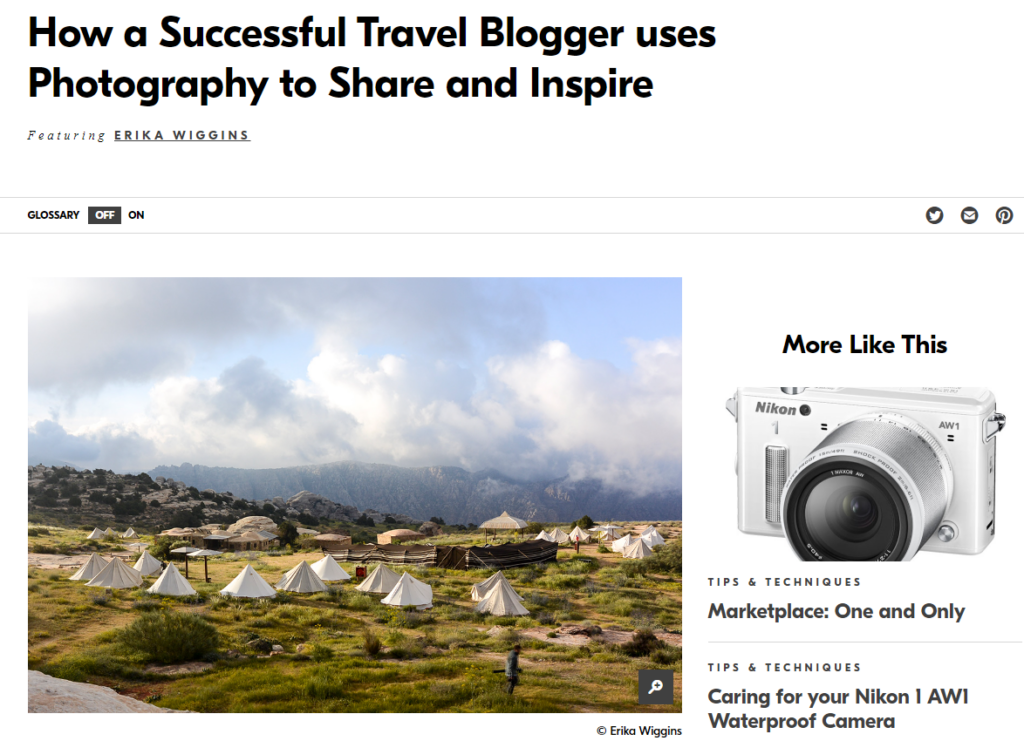
Leverage your brand
Big names like Coca-Cola or Johnson & Johnson have a leg up because their brands are trusted. This trust means other websites are more inclined to link to them.
Most enterprises have built recognizable brands that people trust. In link building, this means other websites are more inclined to link to yours.
This tip is also useful for smaller brands owned by well-known organizations. You can use the enterprise brand name to establish trust and authority, facilitating any link-building efforts.
That’s right. Even smaller brands owned by well-known companies like Coca-Cola can benefit from this.

Therefore, use the enterprise brand name to establish trust and authority, which can make your link-building efforts much easier.
Empower your teams
Link building shouldn’t be limited to just the SEO team. Everyone in the company can help by sharing content on their social media and engaging in industry forums. To make this happen, provide the right training.
Kristyna Stadlerova emphasizes the importance of educating both teams and management about the value of link building. Informed employees are more likely to contribute effectively.
Ensure both teams and management are well-informed about the importance of link-building. Without knowledge, realizing the results becomes challenging, making education crucial for success.
Final Words
While enterprise link-building uses the same basic techniques as smaller businesses, it requires a more strategic approach to manage its scale and complexity.
If you’re ready to scale up your link-building efforts and boost your business performance, the Editorial.Link team is here to help.





